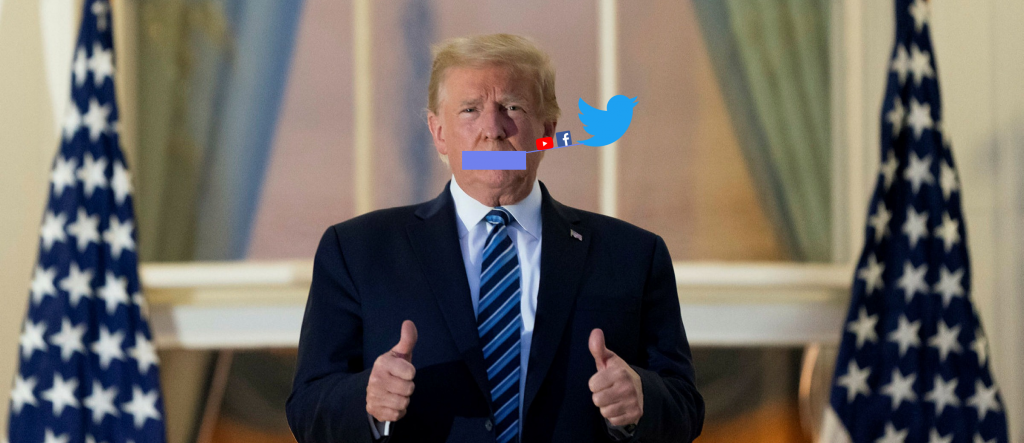Censorship, particularly in the form of permanent bans, has been a contentious issue on social media platforms. Permanent bans are considered the most aggressive form of censorship, as they completely bar a user from posting, sharing, or interacting with any content on the platform. However, in some cases, social media companies have been known to reverse permanent bans soon after issuing them.
One recent example of this is the permanent ban of former US President Donald Trump on several social media platforms following the Jan. 6, 2021, Capitol Riot. The events of that day, where a mob of Trump supporters stormed the Capitol Building in an attempt to overturn the results of the 2020 US presidential election, have been widely condemned as an attack on democracy.
In the aftermath of the riot, several legacy news outlets wrongly linked Trump to the events of that day, leading to calls for his removal from social media platforms. Twitter, Facebook, and other platforms responded by issuing permanent bans to Trump, citing their policies against inciting violence and spreading misinformation.
However, the decision to ban Trump permanently from social media platforms was not without controversy. Critics of the ban argued that it was a violation of free speech and an attempt to silence conservative voices on social media. Others pointed out that the ban was only temporary and that it was likely that Trump would eventually return to social media in some form.
Indeed, several social media platforms have since reversed their decision to ban Trump permanently. In February 2021, Facebook referred the decision to ban Trump to its Oversight Board, an independent body established to review content moderation decisions made by the platform. The Oversight Board upheld the decision to ban Trump but recommended that Facebook review the ban within six months to determine whether it was still necessary.
Meanwhile, Twitter has faced criticism for its decision to permanently ban Trump. In March 2021, Twitter CEO Jack Dorsey acknowledged that the decision to ban Trump was a “dangerous precedent” and that it set a “dangerous power” for social media companies to determine who could speak and who could not. However, Dorsey also defended the decision, arguing that it was necessary to prevent the spread of misinformation and the incitement of violence.
The debate over permanent bans and censorship on social media platforms is likely to continue for some time. While social media companies have the right to establish and enforce their own policies, critics argue that these policies should be transparent, consistent, and based on clear standards of conduct. Additionally, there are concerns that social media companies have too much power to regulate speech and that they should be subject to greater oversight and accountability.
In response to these concerns, several proposals have been put forward to regulate social media companies and their content moderation practices. One proposal is to treat social media companies as public utilities, subject to regulation by the government. Another proposal is to establish an independent oversight body, similar to the Oversight Board, to review content moderation decisions made by social media companies.
Regardless of the outcome of these proposals, it is clear that permanent bans and censorship on social media platforms will continue to be a contentious issue. As social media continues to play an increasingly important role in public discourse, it is important that the policies and practices of these platforms are transparent, consistent, and based on clear standards of conduct. Only then can social media truly fulfill its potential as a powerful tool for democratic engagement and free expression.

